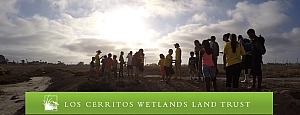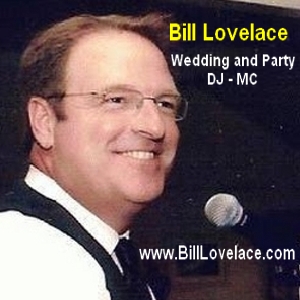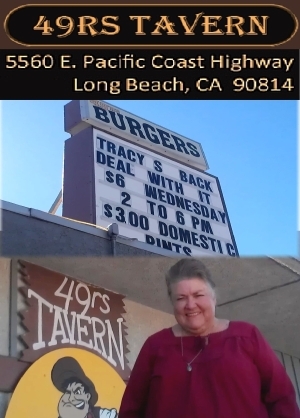Tonight's item comes after a September-October 2016 agenda item by Councilmembers Price and Supernaw proposed a "citywide ordinance restricting oversized and recreational vehicles in residential and commercial corridors based on elements from the surrounding cities of Lakewood, Costa Mesa and Westminister like: No RV shall be parked on any street or alley for more than 48 consecutive hours; RVs and trailers not registered to a Long Beach address cannot park on streets without a daily temporary permit; RVs registered to a Long Beach address may park on the block they are registered to for no more than 48 hours consecutively; RVs may not be repark within one fifth of a mile from any prior permitted location within 24 hours; Nonmotorized vehicles may be parked for the sole purpose of actively loading and unloading for a no more than 24 hours."
Sponsor | Sponsor |
The Price-Supernaw item hit choppy water when Councilmembers Pearce and Austin made a substitute motion to take no action on it amid questions over whether the proposal was in effect a way to prevent people without permanent residences from living in their parked RVs on city streets. A substitute-substitute motion sent that issue, and others, to city staff for a report with answers on a number of RV-parking issues, including applying the RV ban in coastal areas. City staff's report with answers to those questions from Public Works Director Craig Beck) is attached to tonight's agendizing memo.
Sponsor |
Sponsor: Computer Repair Long Beach |
Regarding banning RV parking by persons without permanent residences, city staff's report states:
...Additional concerns have been expressed about RVs occupied by people with no permanent residence. In these situations, which primarily occur along the City's commercial corridors, the City receives complaints of trash and debris (in some cases human waste) left in the public right-of-way, and crime......[Long Beach Municipal Code] Section 10.18.040 states: "No person shall use or occupy any recreational vehicle, trailer coach, camper, van or other vehicle on any public street for human habitation or camping purposes." This regulation, adopted in 1985, is rarely used, according to Health Department staff, who focus their efforts instead on outreach and services. Similar ordinances are in effect in cities throughout the state, but their validity has been called into question by several recent federal court decisions stemming from enforcement in the City of Los Angeles.
The Los Angeles City Council adopted their ordinance in 1983. In 2010, the City of Los Angeles received numerous complaints about homeless people living in vehicles on public streets. According to the complaints, these individuals were dumping trash and human waste on streets and parkways and endangering public health. In response to these complaints, the City "announced a renewed commitment to enforcing [Los Angeles Municipal Code] Section 85-02" and created a Los Angeles Police Department task force to issue citations and makearrests.
Following the issuance of several citations and multiple arrests under Section 85.02, a group of homeless individuals brought a 42 U.S.C. § 1983 action lawsuit against LosAngeles. In Desertrain v. City of Los Angeles (9th Cir, 2014), the court found the Los Angeles ordinance was unconstitutionally vagueand overbroad because It did notadequately identify prohibited conduct and encouraged arbitrary and discriminatory enforcement. As a result, Los Angeles recently repealed their ordinance and is replacing it with a regulation that defines vehicle dwelling and prohibits "it on any street adjoining a single family or multi-family residentially zoned parcel between 9:00 p.m. and 6:00 a.m. It also prohibits dwelling in vehicles at any time within a one-block radius of certain sensitive uses, specifically parks or licensed schools, preschools or daycare facilities. The new ordinance will be enforced in connection with the City's new Safe Parking Pilot Program (see "Regulations of Other Cities"), in ways that are workable with the population served - for example, a schedule of graduated infractions and a court diversion program.
The Ninth Circuit's ruling in the Desertrain case is precedent for the City of Long Beach, and it is not recommended that LBMC Section 10.18.040 be used as a current enforcement tool.
If that is the direction of the City Council, it is recommended that a new ordinance be adopted that is similar in specificity to Los Angeles.
Regarding an RV parking ban in LB's coastal areas:
The California Coastal Commission (CCC) would need to review andapprove any restrictions that could be perceived as negatively impacting public access to the coastal area. This would be inconsistent with the Local Coastal Program, which requires that public access be provided to people of all income levels, including those living in RVs. The City of Santa Cruz enacted a citywide ban that was appealed and denied by the CCC because the short-term permitting process allowed overnight RV parking onlyfor adjacent property owners or guests.It is possible that a citywide ban would be denied by the CCC based on recent rulings, if the ban precludes coastal access.
Once City Council passes a citywide oversized vehicle and RV ordinance and a resolution requesting the CCC certify the changes to the Local Coastal Program, staffwould submit the ordinance to the CCC for certification. CCC would hold a publichearing onthe request within three months, unless Coastal staff requests a one-year extension. Prior to going to City Council, and after the draft language of the ordinance has been established, staff would schedule a meeting with the CCC to get their feedback on the draft language.
The net effect: City staff will recommend tonight the changes indicated above based on the following:
Long Beach residents have complaints relating to oversized and recreational vehicle (RV) impacts, especially in residential neighborhoods and commercial corridors. The problem is worse in neighborhoods that lack adequate parking for its residents, as an RV can take three or four normal-sized parking spaces. Additionally, these large vehicles can sometimes create sight issues at intersections, driveways, and alleys. The City has enforcement tools available to address some ofthese issues, but they are out of date and inconsistent with neighboring communities. The LBMC and California Vehicle Code have several sections defining parking restrictions for oversized vehicles. When reviewed together, these sections can be confusing and appear to be contradictory.Staff proposes amending the LBMC to restrict parking of oversized vehicles and RVs in residential areas citywide and post parking prohibition signs at all streets crossing city boundaries entering the City of Long Beach. Signs would also be posted at all freeway exit ramps within the city. For residential areas within the Local Coastal Program, the Coastal Commission will have to be consulted. The City will need to pass an Ordinance requesting the Coastal Commission certify the changes to the Local Coastal Program. Staff will schedule a meeting with the Coastal Commission to get their feedback on the draft language, and will submit the Ordinance to the Coastal Commission for their certification. The Coastal Commission will hold a public hearing on the request within three months unless Coastal Commission staff requests a one-year extension.
Prior to posting the signs, notices alerting residents of this change will be mailed in resident utility bills and posted to the City's website and social media. There is an existing free online permit application system that will be used to generate temporary permits. <
Currently, the City approaches parking restrictions on a case-by-case basis. This results in a staff-intensive and inconsistent approach. Staff recommends a more focused approach and believes it is necessary to change elements ofthe LBMC to provide more clarity. The restriction of oversized vehicles on commercial streets should continue to take place by evaluating each street individually. Further, any modifications should provide consistency throughout the City and minimize the cost of enforcement.
Sponsor | Sponsor |
Sponsor |  |
blog comments powered by Disqus
Recommend LBREPORT.com to your Facebook friends:
Follow LBReport.com with:
RSS |
Contact us: mail@LBReport.com





Hardwood Floor Specialists
Call (562) 422-2800 or (714) 836-7050
